-

Jan
05
Deana Hancock's Animal Science "Family Tree" Story
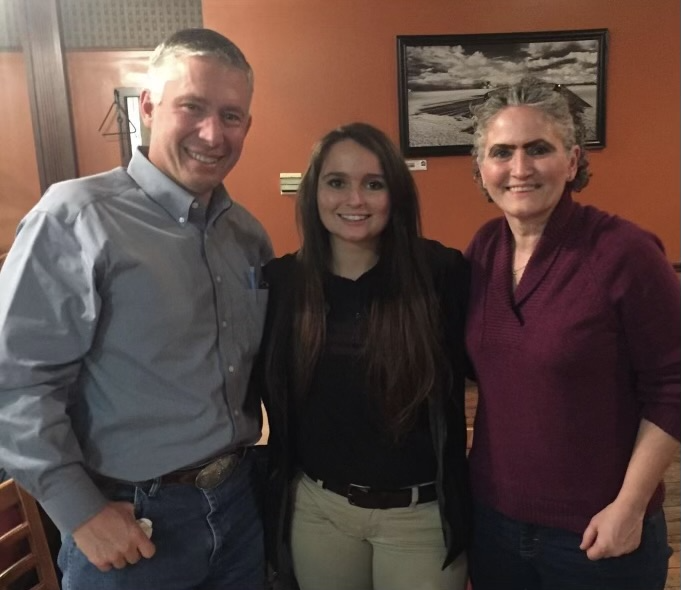
ASAS has been a constant presence in my family's life, opening doors and providing opportunities for three generations. It all began with my father-in-law, Gerald Hancock, as an undergraduate student at MU, where he had the privilege of taking Dr. Preston's classes. Then, I pursued my Ph.D. at Texas Tech, also studying under Dr. Preston. And now, the legacy continues with my daughter, Sydney Schnur, who recently graduated with a degree in animal science from Purdue and completed her Ph.D. in Veterinary ImmunoPathobiology at Kansas State under the guidance of a former student of Dr. Preston, Dan Thomson, Ph.D./DVM.
ASAS has been more than just an organization to us. It has been a second family, a source of support, and a catalyst for our growth and success. I am grateful for the doors it has opened for my family and for the countless opportunities it continues to provide.
Deana Hancock, Ph.D. | Director, Global Applied Research and Technology | Novus International
Read more
-

Jan
03
Interpretive Summary: Designing an early selection morphological traits index for reproductive efficiency in Pura Raza Española mares
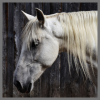
Historically in livestock production, employing combinations of traits as selection criteria for indirect selection of related traits has been a challenging task, particularly when this implies selection for reproductive traits based on the animal morphology. However, if the decision about animal selection is based on morphological traits that are quick and easy to obtain, in addition to early reproductive traits, selection responses can be improved and made earlier.
Read more
-

Jan
03
Interpretive Summary: Long-stranded non-coding RNAs temporal-specific expression profiles reveal longissimus dorsi muscle development and intramuscular fat deposition in Tianzhu white yak

In-depth analysis of the molecular regulatory mechanisms involved in the development of yak skeletal muscle can aid in the identification of crucial functional genes that may enhance the quality of yak meat in the future. Our research is the first to investigate the expression of long-stranded non-coding RNAs (lncRNAs) during muscle development and intramuscular fat deposition in Tianzhu white yaks at different ages (6, 30, and 54 mo).
Read more
-

Jan
03
Interpretive Summary: Effects of the central melanocortin system on feed intake, metabolic hormones and insulin action in the sheep
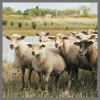
Highly productive ruminants face short-term nutritional deficits during demanding phases of their life cycle. They remain productive and healthy during these periods through a series of metabolic adaptations. Current models in ruminant biology attribute the coordination of these adaptations to circulating hormones and bioactive metabolites but have not considered the possibility that the central nervous system (CNS) is also involved.
Read more
-

Jan
03
Interpretive Summary: Effect of the supplementation with a combination of plant extracts on sow and piglet performance and physiology during lactation and around weaning
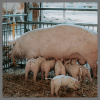
Weaning is a critical period for piglets. Some plant extracts, known to exhibit antioxidant, anti-inflammatory, or antibacterial properties, may improve piglets’ robustness at weaning. This study investigated the effects of a maternal and/or a direct supplementation of piglets with a combination of plant extracts on sow and piglet metabolic, immune, inflammatory, and oxidative status during lactation and around weaning.
Read more
-

Jan
03
Interpretive Summary: Variability of sialic acids in meat from alternative species to beef and pork
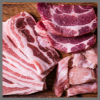
High consumption of red meat is associated with increased risk of human cardiovascular diseases and cancer. However, meat is also considered important for human diet by providing intake of essential compounds.
Read more
-

Dec
28
Interpretive Summary: Evaluation of multienzyme supplementation and fiber levels on nutrient and energy digestibility of diets fed to gestating sows and growing pigs
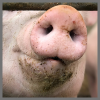
Fiber-degrading enzymes have been extensively studied in growing pigs with minimal studies focusing on gestating sows; however, commercial gestating sow diets often contain more fiber than grower pig diets to stimulate the sensation of satiety without influencing weight gain. A challenge with dietary fiber is its hindrance on digestibility of nutrients.
Read more
-

Dec
28
Interpretive Summary: Dietary glycine supplementation improves the growth performance of 110- to 240-g (phase II) hybrid striped bass (Morone saxatilis ♀× Morone chrysops ♂) fed soybean meal-based diets
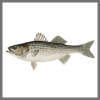
Glycine is the simplest but the most abundant amino acid in the bodies of animals including fish and pigs. The content of glycine in plant-sourced feedstuffs (e.g., soybean meal) is generally low. Glycine can be synthesized de novo in all animals and, therefore, has traditionally been classified as a nutritionally nonessential amino acid for fish and mammals.
Read more
-

Dec
28
Interpretive Summary: Influence of fiber type and carbohydrase supplementation on nutrient digestibility, energy and nitrogen balance, and physiology of sows at mid and late gestation
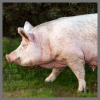
This study evaluated the effects and mechanisms of supplementing multicarbohydrases to gestating sow diets containing either corn-dried distiller grains or sugar beet pulp fibrous co-products. Findings revealed significant energy, dry matter, and fiber digestibility enhancements with carbohydrase supplementation, irrespective of adaptation time.
Read more
-

Dec
28
Interpretive Summary: Associations of automated body condition scores at dry-off and through early lactation with milk yield of Holstein cows
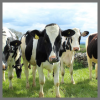
The objective of this study was to analyze the associations of body condition score (BCS) and BCS change (∆BCS) during the dry period and the first 100 d of lactation with daily milk yield. The involvement of health status in these associations was also evaluated.
Read more
-

Dec
28
Interpretive Summary: Accuracy of enteric methane emission models for cattle in sub-Saharan Africa: status quo and the way forward

Accurate estimates of enteric methane (CH4) emissions are needed to ascertain the efficacy of mitigation strategies proposed for cattle in sub-Saharan Africa (SSA). Models used for cattle in SSA were developed using data on metabolic processes measured from cattle in temperate regions which may lead to inaccurate enteric CH4 estimates.
Read more
-

Dec
28
Interpretive Summary: Low birth weight and reduced postnatal nutrition lead to cardiac dysfunction in piglets
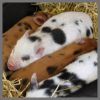
Heart disease is the leading cause of death in humans, and in addition to the known modifiable risk factors, evidence suggests early life undernutrition increases heart disease risk in adulthood. Specifically, low birth weight (LBW) has been linked to poor infant cardiac development which could be made worse by an inadequate postnatal diet.
Read more
-

Dec
21
Interpretive Summary: Effects of hydrolyzed chicken liver on digestibility, fecal and urinary characteristics, and fecal metabolites of adult dogs

Feeding companion animals with high-protein diets has been a demand of the market and pet owners. However, the protein quality and quantity consumed can interfere with the amount of undigested protein that reaches the hindgut and be fermented. Intestinal fermentation can be desired when well controlled.
Read more
-

Dec
21
Interpretive Summary: Effects of overfeeding on the digestive efficiency, voluntary physical activity levels, and fecal characteristics and microbiota of adult cats

Feline obesity continues to rise, impacting the wellness, quality of life, and longevity of cats. Understanding the metabolic and gastrointestinal changes that companion animals face with the onset of weight gain and obesity may help with future prevention and treatment plans.
Read more
-

Dec
21
Interpretive Summary: A glucagon-like peptide-1 receptor antagonist reduces the insulin response to a glycemic meal in ponies
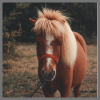
Horses and ponies are prone to suffer from laminitis if they produce too much insulin after eating a high-sugar/starch meal. Laminitis associated with high insulin is very painful and can result in the affected animals having to be put down. The reason why some ponies over-produce insulin is not known.
Read more
-

Dec
21
Interpretive Summary: Prediction of body condition in Jersey dairy cattle from 3D-images using machine learning techniques
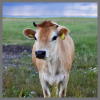
The body condition of dairy cows is a crucial health and welfare indicator that is widely acknowledged in dairy cattle management. Routine recording of high-quality body condition phenotypes is required for adaptation in dairy herd management.
Read more
-

Dec
21
Interpretive Summary: Advances, challenges and prospective of sustainable use of capybara (Hydrochoerus hydrochaeris) in Colombia
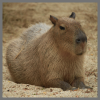
The historical use of capybaras in Colombia has resulted in numerous regulatory stages; however, a crucial factor has been the environmental authorities’ low technical capacity to implement management plans.
Read more
-

Dec
21
Interpretive Summary: Insights into the merits and market potential of yak meat
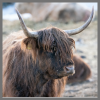
Yak meat is a source of protein, essential amino acids, and polyunsaturated fatty acids (PUFA), especially n-3 PUFA, and is also low in fat content.
Read more
-

Dec
13
Interpretive Summary: Effects of high levels of zinc oxide and dietary zinc/copper ratios on the metabolism of iron in weaned pigs
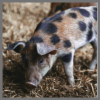
Zinc oxide and copper sulfate are commonly used to prevent diarrhea in weaned piglets as an alternative to antibiotics. However, this strategy has been questioned due to environmental issues and public health concerns related to bacterial resistance. Recently, it was reported that high dietary zinc levels and/or high dietary zinc/copper ratios impair zinc and copper homeostasis and are detrimental to postweaning piglets’ health.
Read more
-

Dec
13
Interpretive Summary: Effect of Pseudostellaria heterophylla polysaccharide on the growth and liver metabolism of chicks
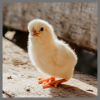
In order to explore the possibility of Pseudostellaria heterophylla polysaccharide (PHP) as green and healthy feed additive, we evaluated the effects of PHP on the growth, development and liver metabolism of chicks by feeding chicks diets in this study.
Read more
 JanDeana Hancock's Animal Science "Family Tree" Story
JanDeana Hancock's Animal Science "Family Tree" Story ASAS has been a constant presence in my family's life, opening doors and providing opportunities for three generations. It all began with my father-in-law, Gerald Hancock, as an undergraduate student at MU, where he had the privilege of taking Dr. Preston's classes. Then, I pursued my Ph.D. at Texas Tech, also studying under Dr. Preston. And now, the legacy continues with my daughter, Sydney Schnur, who recently graduated with a degree in animal science from Purdue and completed her Ph.D. in Veterinary ImmunoPathobiology at Kansas State under the guidance of a former student of Dr. Preston, Dan Thomson, Ph.D./DVM.
ASAS has been a constant presence in my family's life, opening doors and providing opportunities for three generations. It all began with my father-in-law, Gerald Hancock, as an undergraduate student at MU, where he had the privilege of taking Dr. Preston's classes. Then, I pursued my Ph.D. at Texas Tech, also studying under Dr. Preston. And now, the legacy continues with my daughter, Sydney Schnur, who recently graduated with a degree in animal science from Purdue and completed her Ph.D. in Veterinary ImmunoPathobiology at Kansas State under the guidance of a former student of Dr. Preston, Dan Thomson, Ph.D./DVM. JanInterpretive Summary: Designing an early selection morphological traits index for reproductive efficiency in Pura Raza Española mares
JanInterpretive Summary: Designing an early selection morphological traits index for reproductive efficiency in Pura Raza Española mares Historically in livestock production, employing combinations of traits as selection criteria for indirect selection of related traits has been a challenging task, particularly when this implies selection for reproductive traits based on the animal morphology. However, if the decision about animal selection is based on morphological traits that are quick and easy to obtain, in addition to early reproductive traits, selection responses can be improved and made earlier.
Historically in livestock production, employing combinations of traits as selection criteria for indirect selection of related traits has been a challenging task, particularly when this implies selection for reproductive traits based on the animal morphology. However, if the decision about animal selection is based on morphological traits that are quick and easy to obtain, in addition to early reproductive traits, selection responses can be improved and made earlier. JanInterpretive Summary: Long-stranded non-coding RNAs temporal-specific expression profiles reveal longissimus dorsi muscle development and intramuscular fat deposition in Tianzhu white yak
JanInterpretive Summary: Long-stranded non-coding RNAs temporal-specific expression profiles reveal longissimus dorsi muscle development and intramuscular fat deposition in Tianzhu white yak In-depth analysis of the molecular regulatory mechanisms involved in the development of yak skeletal muscle can aid in the identification of crucial functional genes that may enhance the quality of yak meat in the future. Our research is the first to investigate the expression of long-stranded non-coding RNAs (lncRNAs) during muscle development and intramuscular fat deposition in Tianzhu white yaks at different ages (6, 30, and 54 mo).
In-depth analysis of the molecular regulatory mechanisms involved in the development of yak skeletal muscle can aid in the identification of crucial functional genes that may enhance the quality of yak meat in the future. Our research is the first to investigate the expression of long-stranded non-coding RNAs (lncRNAs) during muscle development and intramuscular fat deposition in Tianzhu white yaks at different ages (6, 30, and 54 mo). JanInterpretive Summary: Effects of the central melanocortin system on feed intake, metabolic hormones and insulin action in the sheep
JanInterpretive Summary: Effects of the central melanocortin system on feed intake, metabolic hormones and insulin action in the sheep Highly productive ruminants face short-term nutritional deficits during demanding phases of their life cycle. They remain productive and healthy during these periods through a series of metabolic adaptations. Current models in ruminant biology attribute the coordination of these adaptations to circulating hormones and bioactive metabolites but have not considered the possibility that the central nervous system (CNS) is also involved.
Highly productive ruminants face short-term nutritional deficits during demanding phases of their life cycle. They remain productive and healthy during these periods through a series of metabolic adaptations. Current models in ruminant biology attribute the coordination of these adaptations to circulating hormones and bioactive metabolites but have not considered the possibility that the central nervous system (CNS) is also involved. JanInterpretive Summary: Effect of the supplementation with a combination of plant extracts on sow and piglet performance and physiology during lactation and around weaning
JanInterpretive Summary: Effect of the supplementation with a combination of plant extracts on sow and piglet performance and physiology during lactation and around weaning Weaning is a critical period for piglets. Some plant extracts, known to exhibit antioxidant, anti-inflammatory, or antibacterial properties, may improve piglets’ robustness at weaning. This study investigated the effects of a maternal and/or a direct supplementation of piglets with a combination of plant extracts on sow and piglet metabolic, immune, inflammatory, and oxidative status during lactation and around weaning.
Weaning is a critical period for piglets. Some plant extracts, known to exhibit antioxidant, anti-inflammatory, or antibacterial properties, may improve piglets’ robustness at weaning. This study investigated the effects of a maternal and/or a direct supplementation of piglets with a combination of plant extracts on sow and piglet metabolic, immune, inflammatory, and oxidative status during lactation and around weaning. JanInterpretive Summary: Variability of sialic acids in meat from alternative species to beef and pork
JanInterpretive Summary: Variability of sialic acids in meat from alternative species to beef and pork High consumption of red meat is associated with increased risk of human cardiovascular diseases and cancer. However, meat is also considered important for human diet by providing intake of essential compounds.
High consumption of red meat is associated with increased risk of human cardiovascular diseases and cancer. However, meat is also considered important for human diet by providing intake of essential compounds. DecInterpretive Summary: Evaluation of multienzyme supplementation and fiber levels on nutrient and energy digestibility of diets fed to gestating sows and growing pigs
DecInterpretive Summary: Evaluation of multienzyme supplementation and fiber levels on nutrient and energy digestibility of diets fed to gestating sows and growing pigs Fiber-degrading enzymes have been extensively studied in growing pigs with minimal studies focusing on gestating sows; however, commercial gestating sow diets often contain more fiber than grower pig diets to stimulate the sensation of satiety without influencing weight gain. A challenge with dietary fiber is its hindrance on digestibility of nutrients.
Fiber-degrading enzymes have been extensively studied in growing pigs with minimal studies focusing on gestating sows; however, commercial gestating sow diets often contain more fiber than grower pig diets to stimulate the sensation of satiety without influencing weight gain. A challenge with dietary fiber is its hindrance on digestibility of nutrients. DecInterpretive Summary: Dietary glycine supplementation improves the growth performance of 110- to 240-g (phase II) hybrid striped bass (Morone saxatilis ♀× Morone chrysops ♂) fed soybean meal-based diets
DecInterpretive Summary: Dietary glycine supplementation improves the growth performance of 110- to 240-g (phase II) hybrid striped bass (Morone saxatilis ♀× Morone chrysops ♂) fed soybean meal-based diets Glycine is the simplest but the most abundant amino acid in the bodies of animals including fish and pigs. The content of glycine in plant-sourced feedstuffs (e.g., soybean meal) is generally low. Glycine can be synthesized de novo in all animals and, therefore, has traditionally been classified as a nutritionally nonessential amino acid for fish and mammals.
Glycine is the simplest but the most abundant amino acid in the bodies of animals including fish and pigs. The content of glycine in plant-sourced feedstuffs (e.g., soybean meal) is generally low. Glycine can be synthesized de novo in all animals and, therefore, has traditionally been classified as a nutritionally nonessential amino acid for fish and mammals. DecInterpretive Summary: Influence of fiber type and carbohydrase supplementation on nutrient digestibility, energy and nitrogen balance, and physiology of sows at mid and late gestation
DecInterpretive Summary: Influence of fiber type and carbohydrase supplementation on nutrient digestibility, energy and nitrogen balance, and physiology of sows at mid and late gestation This study evaluated the effects and mechanisms of supplementing multicarbohydrases to gestating sow diets containing either corn-dried distiller grains or sugar beet pulp fibrous co-products. Findings revealed significant energy, dry matter, and fiber digestibility enhancements with carbohydrase supplementation, irrespective of adaptation time.
This study evaluated the effects and mechanisms of supplementing multicarbohydrases to gestating sow diets containing either corn-dried distiller grains or sugar beet pulp fibrous co-products. Findings revealed significant energy, dry matter, and fiber digestibility enhancements with carbohydrase supplementation, irrespective of adaptation time. DecInterpretive Summary: Associations of automated body condition scores at dry-off and through early lactation with milk yield of Holstein cows
DecInterpretive Summary: Associations of automated body condition scores at dry-off and through early lactation with milk yield of Holstein cows The objective of this study was to analyze the associations of body condition score (BCS) and BCS change (∆BCS) during the dry period and the first 100 d of lactation with daily milk yield. The involvement of health status in these associations was also evaluated.
The objective of this study was to analyze the associations of body condition score (BCS) and BCS change (∆BCS) during the dry period and the first 100 d of lactation with daily milk yield. The involvement of health status in these associations was also evaluated. DecInterpretive Summary: Accuracy of enteric methane emission models for cattle in sub-Saharan Africa: status quo and the way forward
DecInterpretive Summary: Accuracy of enteric methane emission models for cattle in sub-Saharan Africa: status quo and the way forward Accurate estimates of enteric methane (CH4) emissions are needed to ascertain the efficacy of mitigation strategies proposed for cattle in sub-Saharan Africa (SSA). Models used for cattle in SSA were developed using data on metabolic processes measured from cattle in temperate regions which may lead to inaccurate enteric CH4 estimates.
Accurate estimates of enteric methane (CH4) emissions are needed to ascertain the efficacy of mitigation strategies proposed for cattle in sub-Saharan Africa (SSA). Models used for cattle in SSA were developed using data on metabolic processes measured from cattle in temperate regions which may lead to inaccurate enteric CH4 estimates. DecInterpretive Summary: Low birth weight and reduced postnatal nutrition lead to cardiac dysfunction in piglets
DecInterpretive Summary: Low birth weight and reduced postnatal nutrition lead to cardiac dysfunction in piglets Heart disease is the leading cause of death in humans, and in addition to the known modifiable risk factors, evidence suggests early life undernutrition increases heart disease risk in adulthood. Specifically, low birth weight (LBW) has been linked to poor infant cardiac development which could be made worse by an inadequate postnatal diet.
Heart disease is the leading cause of death in humans, and in addition to the known modifiable risk factors, evidence suggests early life undernutrition increases heart disease risk in adulthood. Specifically, low birth weight (LBW) has been linked to poor infant cardiac development which could be made worse by an inadequate postnatal diet. DecInterpretive Summary: Effects of hydrolyzed chicken liver on digestibility, fecal and urinary characteristics, and fecal metabolites of adult dogs
DecInterpretive Summary: Effects of hydrolyzed chicken liver on digestibility, fecal and urinary characteristics, and fecal metabolites of adult dogs Feeding companion animals with high-protein diets has been a demand of the market and pet owners. However, the protein quality and quantity consumed can interfere with the amount of undigested protein that reaches the hindgut and be fermented. Intestinal fermentation can be desired when well controlled.
Feeding companion animals with high-protein diets has been a demand of the market and pet owners. However, the protein quality and quantity consumed can interfere with the amount of undigested protein that reaches the hindgut and be fermented. Intestinal fermentation can be desired when well controlled. DecInterpretive Summary: Effects of overfeeding on the digestive efficiency, voluntary physical activity levels, and fecal characteristics and microbiota of adult cats
DecInterpretive Summary: Effects of overfeeding on the digestive efficiency, voluntary physical activity levels, and fecal characteristics and microbiota of adult cats Feline obesity continues to rise, impacting the wellness, quality of life, and longevity of cats. Understanding the metabolic and gastrointestinal changes that companion animals face with the onset of weight gain and obesity may help with future prevention and treatment plans.
Feline obesity continues to rise, impacting the wellness, quality of life, and longevity of cats. Understanding the metabolic and gastrointestinal changes that companion animals face with the onset of weight gain and obesity may help with future prevention and treatment plans. DecInterpretive Summary: A glucagon-like peptide-1 receptor antagonist reduces the insulin response to a glycemic meal in ponies
DecInterpretive Summary: A glucagon-like peptide-1 receptor antagonist reduces the insulin response to a glycemic meal in ponies Horses and ponies are prone to suffer from laminitis if they produce too much insulin after eating a high-sugar/starch meal. Laminitis associated with high insulin is very painful and can result in the affected animals having to be put down. The reason why some ponies over-produce insulin is not known.
Horses and ponies are prone to suffer from laminitis if they produce too much insulin after eating a high-sugar/starch meal. Laminitis associated with high insulin is very painful and can result in the affected animals having to be put down. The reason why some ponies over-produce insulin is not known. DecInterpretive Summary: Prediction of body condition in Jersey dairy cattle from 3D-images using machine learning techniques
DecInterpretive Summary: Prediction of body condition in Jersey dairy cattle from 3D-images using machine learning techniques The body condition of dairy cows is a crucial health and welfare indicator that is widely acknowledged in dairy cattle management. Routine recording of high-quality body condition phenotypes is required for adaptation in dairy herd management.
The body condition of dairy cows is a crucial health and welfare indicator that is widely acknowledged in dairy cattle management. Routine recording of high-quality body condition phenotypes is required for adaptation in dairy herd management. DecInterpretive Summary: Advances, challenges and prospective of sustainable use of capybara (Hydrochoerus hydrochaeris) in Colombia
DecInterpretive Summary: Advances, challenges and prospective of sustainable use of capybara (Hydrochoerus hydrochaeris) in Colombia The historical use of capybaras in Colombia has resulted in numerous regulatory stages; however, a crucial factor has been the environmental authorities’ low technical capacity to implement management plans.
The historical use of capybaras in Colombia has resulted in numerous regulatory stages; however, a crucial factor has been the environmental authorities’ low technical capacity to implement management plans. DecInterpretive Summary: Insights into the merits and market potential of yak meat
DecInterpretive Summary: Insights into the merits and market potential of yak meat Yak meat is a source of protein, essential amino acids, and polyunsaturated fatty acids (PUFA), especially n-3 PUFA, and is also low in fat content.
Yak meat is a source of protein, essential amino acids, and polyunsaturated fatty acids (PUFA), especially n-3 PUFA, and is also low in fat content. DecInterpretive Summary: Effects of high levels of zinc oxide and dietary zinc/copper ratios on the metabolism of iron in weaned pigs
DecInterpretive Summary: Effects of high levels of zinc oxide and dietary zinc/copper ratios on the metabolism of iron in weaned pigs Zinc oxide and copper sulfate are commonly used to prevent diarrhea in weaned piglets as an alternative to antibiotics. However, this strategy has been questioned due to environmental issues and public health concerns related to bacterial resistance. Recently, it was reported that high dietary zinc levels and/or high dietary zinc/copper ratios impair zinc and copper homeostasis and are detrimental to postweaning piglets’ health.
Zinc oxide and copper sulfate are commonly used to prevent diarrhea in weaned piglets as an alternative to antibiotics. However, this strategy has been questioned due to environmental issues and public health concerns related to bacterial resistance. Recently, it was reported that high dietary zinc levels and/or high dietary zinc/copper ratios impair zinc and copper homeostasis and are detrimental to postweaning piglets’ health. DecInterpretive Summary: Effect of Pseudostellaria heterophylla polysaccharide on the growth and liver metabolism of chicks
DecInterpretive Summary: Effect of Pseudostellaria heterophylla polysaccharide on the growth and liver metabolism of chicks In order to explore the possibility of Pseudostellaria heterophylla polysaccharide (PHP) as green and healthy feed additive, we evaluated the effects of PHP on the growth, development and liver metabolism of chicks by feeding chicks diets in this study.
In order to explore the possibility of Pseudostellaria heterophylla polysaccharide (PHP) as green and healthy feed additive, we evaluated the effects of PHP on the growth, development and liver metabolism of chicks by feeding chicks diets in this study.



